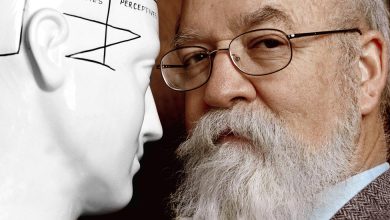For Parents of Disabled Children, School Mask Wars Are Particularly Wrenching

FRANKLIN, Tenn. — Five years ago, Kim Hart’s son underwent an open-heart surgery that got him healthy enough for the family to move from Cincinnati to this quiet suburb of Nashville. Her son has Down syndrome and autism, and she liked that Williamson County had a reputation for caring neighbors and safe schools.
But every day for the past month, she has wondered whether she made a mistake.
It was here that an explosive debate over masking in schools — one of the most effective strategies for keeping students learning in person safely during the pandemic — made the county a poster child for divisions over coronavirus safety measures. A video clip of a county school board meeting last month, showing protesters heckling and threatening medical professionals and parents who supported a universal mask mandate as they left the meeting, drew national attention and a rebuke from President Biden.
As cases in Tennessee surged — the state was leading the nation in new infections per capita earlier this month — many residents of the predominantly white, wealthy county were left despondent that a piece of fabric had become a political statement.
“It’s very dystopian,” Ms. Hart said. “I’m used to arguing with a district to get my kid what he needs. I’m not used to my neighbors screaming at a school board meeting over a mandate that protects everybody.”
At the school board’s August meeting, parents who objected to the mandate pleaded with board members to allow them to be the arbiters of their children’s health decisions. Many said they believed that forcing children to wear masks negatively affected their emotional and physical health; some said they did not believe masks had been proven to work at all.
One parent, Leigh-Allyn Baker, a self-described “California refugee,” said she gave up a Hollywood career “for freedom, and to come to this friendly place of Tennessee and be greeted with open arms.”
Holding up copies of the Constitution, the Declaration of Independence, the Bill of Rights, the Federalist Papers and the Bible, Ms. Baker told the board: “These guarantee my freedom, and yours, and my children’s to breathe oxygen.”
The opposition to masks has been particularly crushing for parents like Ms. Hart, who see in-person schooling as a lifeline for their children with disabilities. Those students have been among the most underserved during the pandemic but also sometimes face a higher probability that going to school could make them severely ill.
Tennessee is one of seven states that the federal Education Department is investigating to determine whether governors’ orders allowing families to flout school mask mandates discriminate against students with disabilities by restricting their access to education.
Even though many local school boards, including Williamson County’s, have voted to require universal masking, an executive order issued by Gov. Bill Lee, a Republican, allows parents to send their children to school maskless, no questions asked. At the high school Ms. Hart’s son attends, data published weekly by the district shows that more than 30 percent of parents have formally opted out, a percentage that mirrors the district’s overall.
“We’ve always known that not everybody really cares about our children, but it is in our face right now — that it’s not worth you asking your child to wear a mask, so my child can be safe,” said Ms. Hart, who is a researcher and a trained epidemiologist. “That is the scar that I will carry from the pandemic, this playing out in my face over and over and over again.”
Parents of special education students in two Tennessee counties covering the eastern and western parts of the state have sued to block the governor’s order;one lawsuit has succeeded. A third, covering Williamson County, had a hearing before a judge this week.
In the most recent complaint, three lawyers argued that the governor, the Williamson County school board and a carve-out district within the county called the Franklin Special School District, are violating the rights of special education students by allowing parents to opt their children out of the mandate.
The suit was filed on behalf of a student with Down syndrome and another with Type 1 diabetes, but seeks protections for all “similarly situated” students. “Defendants’ actions have pitted children against children, while placing the health and safety of medically vulnerable children with disabilities in danger,” the complaint said.
A spokeswoman for the governor did not respond to several requests for comment.
The federal scrutiny and legal challenges were welcome news to Becky Peterson, whose 16-year-old son has a rare chromosomal disorder called Dup15q syndrome, as well as autism and epilepsy. At the outset of the pandemic, it seemed that all parents understood the value of the “free appropriate public education” that federal law guarantees special-needs children.
“There was somewhat of a level playing field because we were all in the same boat,” she said. “As this has worn on, we’re all in the pandemic, but our boats look very different.”
Last fall, her son contracted the coronavirus at school — and that was when there was a mask mandate with no loopholes. Ms. Peterson, a professor,said her son’s bout with the virus was distressing, but not as much as the idea of keeping him home from his school, where more than 37 percent of students are not wearing masks.
The gregarious teenager’s communication is limited, but on a recent day he gave hugs and fist bumps as he got off the school bus. One day during remote learning last year, he hugged his computer when his teacher appeared on the screen.
Every morning, Ms. Hart makes excruciating calculations about the risks of sending her nonverbal 18-year-old son to school. He still has residual complications from the congenital heart defect that his surgery sought to correct. And while he recently got the coronavirus vaccine, she worries about breakthrough cases — as a child, he got the chickenpox despite being vaccinated against it.
Like other parents of special education students, Ms. Peterson and Ms. Hart also have, between them, hundreds of other reasons to send their children to school: the hours of instruction and services lost to the pandemic, which the district is supposed to make up this year.
This week, the school boards of both local districts voted to extend their mask mandates until January. The governor’s opt-out order expires on Oct. 5; he has not indicated whether he plans to renew it. The judge overseeing the Williamson County lawsuit ordered the state to notify the court of its intentions by Oct. 1.
In Williamson County, this week’s board meeting was much more civil than the one in August, but just as divided.
“All mandates say that I don’t get to choose, but the ruling class does,” Shelby Rollins, a parent who opposes masks, told the board.
Ava Martin, who identified herself as a junior at Independence High School, which has a nearly 40 percent opt-out rate, implored the board to keep the mask mandate. “There’s many people that find masks a violation of their rights,” she said, “but I say it’s a greater violation to ignore those who need us to help them.”
District officials acknowledged that the percentage of students not wearing masks was most likely much higher than the roughly 30 percent formally opting out. But they maintained that more students were wearing them than before, and that coronavirus positivity rates and quarantine cases were dropping.
“For the purpose of our mission of serving students, it strikes me as wise to leave it in place,” Jason Golden, Williamson County’s superintendent, said of the mandate. “And I think with the balance of the opt-out, we’ve got a structure that’s stable.”
The extensions brought parents some relief. But even without the added challenge of disabilities, some families with children who are too young to be vaccinated have concerns about the safety of attending schools in the county.
Laura Coons does not plan to send her youngest child, a fourth grader, back to in-person classes at his Williamson County school until he is vaccinated. She quit her job with the school system last year because she did not feel safe. She had helped recruit one of the speakers at the August board meeting who was harassed. She knows of local pastors who have preached “faith over fear” from the pulpit. Recently, a man in a Kroger grocery store yelled at her, “The mask don’t work, ma’am.”
“People here are done with the pandemic, but the pandemic is not done with us,” she said. “I couldn’t send him in there knowing there are a fair number of people in this district, in this area, who weren’t taking precautions in life and weren’t going to do so when they send their kid to school.”
Clifton and Shanika Robinson’s three children were excited to head back to school on Aug. 6, having not attended in-person classes since the spring of 2020.
Their two sons started school in the Franklin Special School District, which did not impose a mask mandate until Aug. 20. Their daughter attended high school in Williamson County, which voted to establish the mask mandate in high schools on Aug. 26.
On Aug. 28, their youngest son — the only unvaccinated person in the house — tested positive for the virus. Ms. Robinson, a registered nurse, felt defeated: “It was in our house, down a couple doors from our bedroom, in my baby.”
The Robinsons wonder if it was a child who was allowed to go to school without a mask who sent the virus into their home. They worry that their son might have passed it to someone else. They fear it is inevitable that it will happen again.
His sister, Amari Robinson, was terrified she had given it to him. Amari, a 16-year-old junior, attends a high school with a 19 percent opt-out rate, and prays every day that the percentage dwindles.
“I just want us to do what we can to keep ourselves safe, and those around us safer,” she said. “It’s a group effort; everyone just hasn’t realized it yet.”




